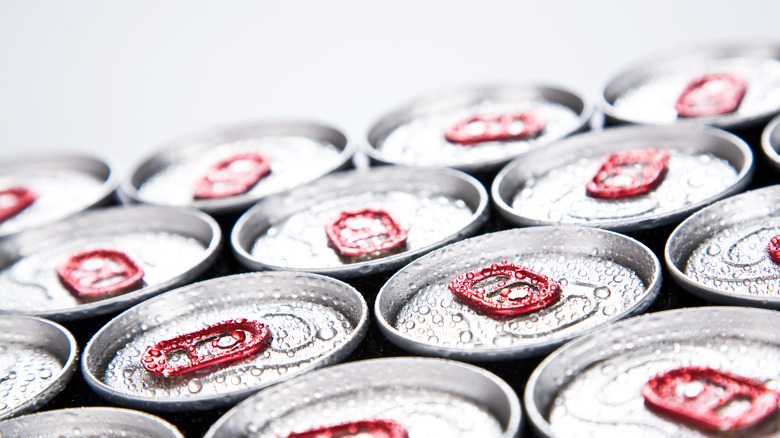
While organizing your refrigerator or pantry, you might find various spices, jars of mayonnaise, or canned foods that have been there for quite some time. Although the only food item required by the U.S. Department of Agriculture (USDA) to have a use-by date is infant formula, food and drink manufacturers are not mandated to date their products. Nevertheless, these dates are not random. Generally, these dates indicate when the products maintain their optimal quality. Other dates are used by manufacturers to identify the production date of the product.
So what about those cans of Diet Pepsi your mother left during her last visit? If the bottom of the cans indicates they are past their prime, the USDA states that they are still safe to consume. Carbonated beverages are non-perishable, so you can safely pack them in a time capsule if you wish. However, they may lose their flavor and carbonation over time.
Best-by dates are about quality, not safety

A best-by date indicates when the product is at its peak quality and when that quality begins to decline. If the date on your Diet Pepsi is next week, you still have about three months to consume it before its quality starts to diminish. In the case of regular Pepsi, it can last for up to nine months after the printed date. Once opened, a soda can be stored in the refrigerator or pantry, although it will lose its fizz more rapidly.
Best-by dates on beverages might seem confusing, but the USDA reassures us that foods or drinks with this label are safe to consume, as long as there are no signs of spoilage, such as an unpleasant odor or a change in color or texture. It’s worth noting that spoilage bacteria won’t cause illness like pathogenic bacteria, but they will accelerate deterioration, making the food or drink less palatable.
What happens after soda expires?

Soda, essentially carbonated water and sugar (or artificial sweeteners), is unlikely to spoil until well past its best-by date. It may even retain its flavor for several years. If a soda can or bottle has been opened, it might still taste good for a few days, even if it loses its fizz.
To maintain carbonation, it’s advisable to store an open soda can in a place with consistent temperature. Covering the top of the can or transferring it to a plastic bottle can help retain the bubbles. Plastic bottles should be kept in a cool, dark place like a pantry. However, room temperature will cause the soda to lose its carbonation more quickly.
If a soda can or bottle appears rusted or damaged, the taste may be affected. Always check the color and smell of the soda; if anything seems off, it’s best to dispose of it.




